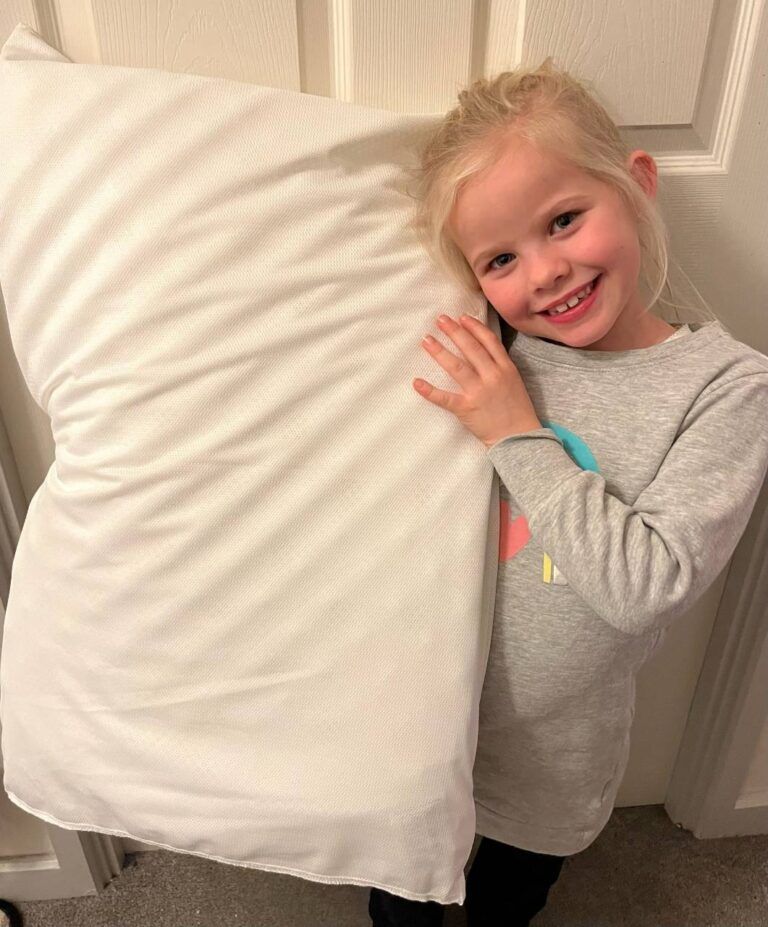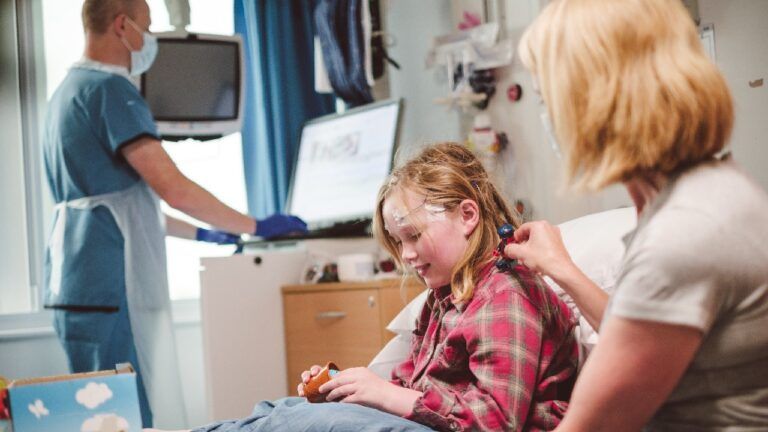14 February 2022
Life-saving pillows for epilepsy children
Today is national epilepsy day, so we want to highlight the life-saving equipment that Southampton Hospitals Charity has provided for patients with epilepsy within Southampton Children’s Hospital.
Nicola has suffered from epilepsy since she was 10 months old, and her daughter, Darcy Norton, seven, also has epilepsy. Nicola says:
“When Darcy was one year old, she had her first seizure which we initially thought was a febrile convulsion linked to a high temperature. After this went down, she had more seizures over the next few weeks, so we were immediately referred to the epilepsy team at Southampton Children’s Hospital for an EEG and MRI scan.
Over the years her treatment plan has changed, and her seizures have changed in the way they present themselves.
The hospital gave us a kit to use so they could monitor her to see how many seizures she was having in 24 hours. We spotted three absence seizures (this type causes you to blank out or stare into space for a few seconds), but the machines told us she had actually had 21 in the space of just one day! We were shocked.
Before I go to bed, I always go in to check on Darcy to make sure she’s breathing. We bought a bed alarm sheet to wake my partner and me in case she has seizures in the night. We were grateful when we were told about the anti-suffocation pillows as this offers that extra peace of mind.
Darcy got so excited about it when she picked it up from the hospital, she calls it her special pillow!”

“With a normal pillow, they just aren’t breathable enough. If Darcy has a seizure, her breathing gets laboured and she can’t always move afterwards.
The anti-suffocation pillow just adds in that extra bit of security for us all. A pillow is something that everyone has, but this one could literally save my daughter’s life. I am so grateful to Southampton Hospitals Charity for providing it for patients like Darcy.”
About the paediatric epilepsy service
Epilepsy is a common condition that affects the brain and causes frequent seizures. These are bursts of electrical activity in the brain that temporarily affect how it works. The condition affects people in different ways, depending on which part of the brain is involved.
Toni Chilton, one of the paediatric epilepsy clinical nurse specialists, explains: “We support all children across the Wessex region with a diagnosis of epilepsy and the subsequent aftercare.
Every year we see over 500 children at both Southampton Children’s Hospital and our satellite clinics at Adelaide and Thornhill.

